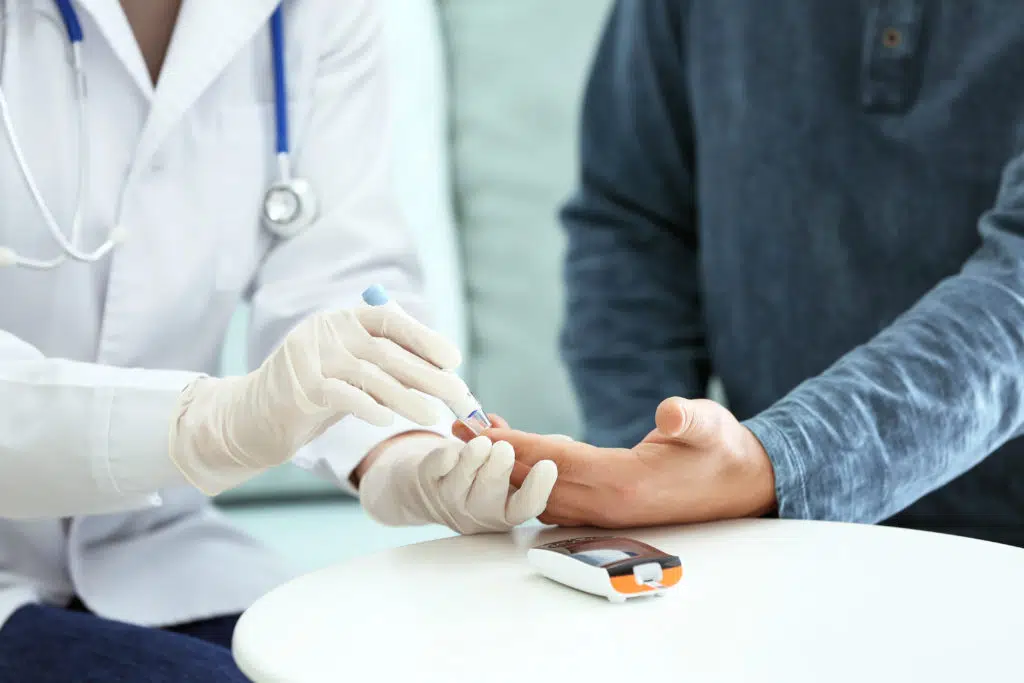You’ve probably heard that alcohol is good for your heart, but that’s an oversimplification and certainly not true for diabetics. In fact, alcohol and its sugars can make some of the complications of diabetes worse. According to the American Diabetes Association, a positive health correlation for heart health only applies to moderate drinkers. Moderate alcohol use for healthy adults generally means up to one drink a day for women and up to two drinks per day for men.
When it comes to drinking alcoholic beverages, the biggest concern for diabetics is hypoglycemia or low blood sugar. Diabetes is a complex disorder interfering with the body’s blood sugar, fat and protein metabolism and affects an estimated 16 million people in the United States. It’s caused (in most cases) by a deficiency or complete lack of insulin, a hormone that is produced in the pancreas to help regulate blood sugar levels.
Understand the effects of alcohol on diabetes
Diabetics must be extremely careful with alcohol because it can lead to abrupt swings in blood sugar levels. Why? Following an initial and short-lived sugar spike, alcohol causes your blood sugars to drop by inhibiting the liver’s ability to release glucose. This initial spike makes your body process sugar at a higher rate, which is then quickly metabolized below what is considered normal. While mildly low blood sugar levels are common among those with diabetes, severely low blood sugar levels can lead to seizures and nervous system damage and become life-threatening if left untreated.
Diabetes and alcohol use: What you need to know
If you or a loved one has diabetes but would like to enjoy an afternoon happy hour from time to time, it’s important to understand the risks:
- Alcohol interacts with diabetes medication
Combining the blood-sugar-lowering effects of diabetes medications with alcohol can lead to hyperglycemia or insulin shock, which is a medical emergency as it could lead to coma or death. - Alcohol prevents your liver from doing its job
When you drink alcohol, your liver has to work to remove it from your blood, which means it’s unable to regulate blood sugar as effectively. This is also why you should never drink alcohol when your blood sugar is already low. - Never drink on an empty stomach
Plan ahead if you are going to drink and be sure to eat a meal or snack that contains carbohydrates. Food helps slow down the rate at which alcohol is absorbed into your bloodstream. - Always test your blood sugar before having alcohol
Alcohol impairs your liver’s ability to regulate your blood sugar, so it’s important to know your blood glucose level (and adjust it if needed with food) before consuming alcoholic beverages. - Drink slowly and know your limit
You can save your life by drinking alcoholic beverages slowly. Symptoms of intoxication and hyperglycemia are very similar, so it can be easy to miss a medical emergency. It’s a good idea to wear a bracelet that alerts people around you that you have diabetes, so if you begin to show symptoms of intoxication they’ll know you might need urgent medical care.
Miramar Recovery Center offers individualized inpatient or outpatient treatment for alcohol abuse at each of our five conveniently located rehabilitation services. Our clinical staff is skilled in the treatment and management of alcohol addiction with underlying health conditions. Call 949-691-5036 to take your first step toward recovery and long-lasting health.



